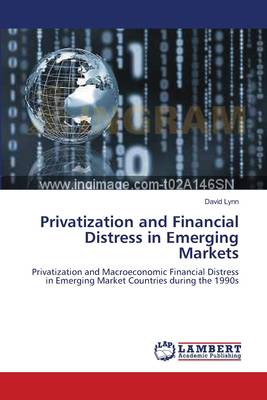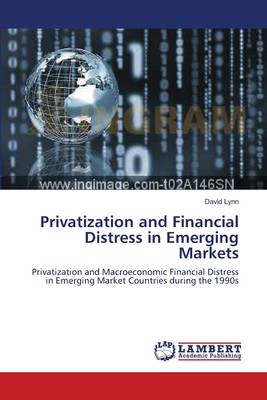
- Afhalen na 1 uur in een winkel met voorraad
- Gratis thuislevering in België vanaf € 30
- Ruim aanbod met 7 miljoen producten
- Afhalen na 1 uur in een winkel met voorraad
- Gratis thuislevering in België vanaf € 30
- Ruim aanbod met 7 miljoen producten
Zoeken
Privatization and Financial Distress in Emerging Markets
Privatization and Macroeconomic Financial Distress in Emerging Market Countries during the 1990s
David Lynn
Paperback | Engels
€ 77,95
+ 155 punten
Omschrijving
This book examines privatization and the relationship between macroeconomic financial distress in emerging market countries. The study was undertaken to investigate the rationales of privatization and to explain the pattern and behavior of privatization in emerging market countries (EMCs). The central hypothesis under investigation is that countries with fiscal pressures such as high debt levels, significant budget deficits, and large current account deficits, ceteris paribus, are more likely to increase their privatization activities. The study begins by providing a background on privatization and state- owned-enterprises (SOEs) in EMCs. It then reviews the theoretical literature underlying privatization and financial distress. Next it provides a comparative profile of EMCs that privatized. The empirical analysis supports the hypothesis of a positive relationship between financial distress (with an emphasis on debt as a primary driver of distress) and privatization. In particular, higher levels of debt caused financial distress which caused countries to privatize relatively more.
Specificaties
Betrokkenen
- Auteur(s):
- Uitgeverij:
Inhoud
- Aantal bladzijden:
- 204
- Taal:
- Engels
Eigenschappen
- Productcode (EAN):
- 9783838304694
- Verschijningsdatum:
- 29/06/2009
- Uitvoering:
- Paperback
- Afmetingen:
- 152 mm x 220 mm
- Gewicht:
- 304 g

Alleen bij Standaard Boekhandel
+ 155 punten op je klantenkaart van Standaard Boekhandel
Beoordelingen
We publiceren alleen reviews die voldoen aan de voorwaarden voor reviews. Bekijk onze voorwaarden voor reviews.











